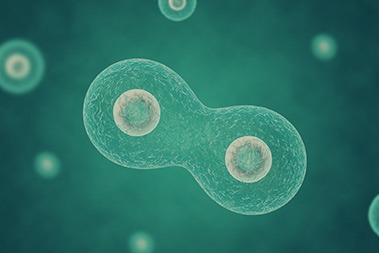New Study Highlights Proper Metabolic Reprogramming in iPSC Generation
Recent research from the laboratory of Alexandra J. Harvey (University of Melbourne, Victoria, Australia) established that induced pluripotent stem cells (iPSCs) fail to modulate carbohydrate and amino acid utilization in response to oxygen [1] when compared to embryonic stem cells (ESCs) or preimplantation embryos.
Recent research from the laboratory of Alexandra J. Harvey (University of Melbourne, Victoria, Australia) established that induced pluripotent stem cells (iPSCs) fail to modulate carbohydrate and amino acid utilization in response to oxygen [1] when compared to embryonic stem cells (ESCs) or preimplantation embryos. These failures are likely due to the lingering memory of the somatic cell of origin at the transcriptional [2], epigenetic [3], and metabolic levels [1, 4]. In a new STEM CELLS study, the team report on their comparisons of the metabolic profiles of iPSCs generated under atmospheric and physiological oxygen levels and their subsequent analyses of iPSC responses to elevated oxygen levels to establish if iPSCs can respond similarly to ESCs [5].
Spyrou et al. first generated iPSCs under conditions of 5% or 20% oxygen to mimic physiological or atmospheric conditions, respectively, and then assessed their overall metabolic profiles. Interestingly, while both sets of iPSCs retained some aspects of somatic cell metabolic memory, such as the failure to regulate glucose uptake when challenged with oxygen, iPSCs generated under atmospheric oxygen concentrations (A-iPSCs), which represents the vast majority of reported iPSCs lines, displayed different metabolic characteristics to iPSCs generated under physiological conditions (P-iPSCs).
While P-iPSCs modulated aspects of both oxidative metabolism and lactate production in response to oxygen during maintenance, A-iPSCs failed to display this response, exhibited altered mitochondrial activity, and suffered from transcriptomic instability and a reduction in telomere length. However, the authors do note that reprogramming under physiological oxygen conditions failed to generate iPSCs with a “true” ESC‐like physiology, suggesting that suboptimal concentrations of other nutrients also contribute to the acquisition of aberrant physiology/retention of somatic cell memory.
So how do altered metabolic profiles prompt changes in transcriptional output and telomere attrition? Metabolites often function as epigenetic cofactors, and so altered metabolism may induce genome-wide changes to the epigenome of iPSCs, thereby disrupting transcriptional profiles. Furthermore, metabolites can also affect telomere length via modulating the activity of certain enzymes, although elevated oxygen concentrations can also induce increased levels of oxidative stress and reactive oxygen species generation, which both promote telomere attrition. These alterations, in turn, may influence iPSC differentiation propensity and the physiology of iPSC-derived cells, thereby impacting downstream applications of iPSCs in disease modeling and cell therapy.





ارسال به دوستان